这些智慧多大程度上适合中国国情?--- 好奇的小编
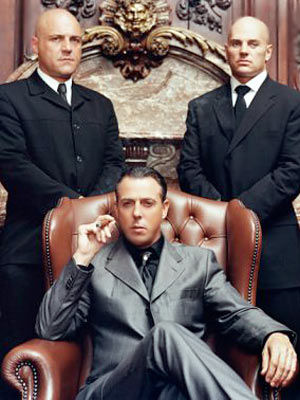 |
9 Wise Ways of the Wealthy
People who get rich -- and stay rich -- know some hidden rules for hanging onto their wealth. Here, Dan Solin, author of 'The Smartest 401(k) Book You'll Ever Read,' shares nine secrets of the rich.
Even if you don’t have a lot of money to start with, you stand a much better chance of getting rich if you know these secrets. Click through our gallery to see 'em.
First Up: Rich Secret No. 1
|
 |
"If It Bleeds, It Leads"
Bad news sells. Good news is boring. Inside media types will tell you that they are guided by this basic rule: If it bleeds, it leads. The financial media is no exception. If all of today's negative headlines are making you think America is going to ruin, think again. Rich people understand that just because the news is bad, doesn't mean that the market won't eventually turn up or that you should ditch (逃避) your long-term investing. |
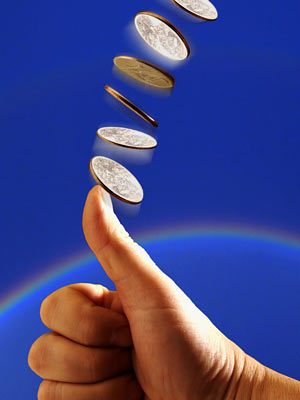 |
The Difference
Between Luck and Skill
Before you entrust your hard-earned money to an investment manager who professes (公开承认) to be able to "beat the markets," you need to understand the difference between random chance and provable expertise (专家的意见或观点;专门知识). A close look at the data indicates that fund managers who claim to beat the market are no more skilled than a lucky coin flipper (抛掷器). |
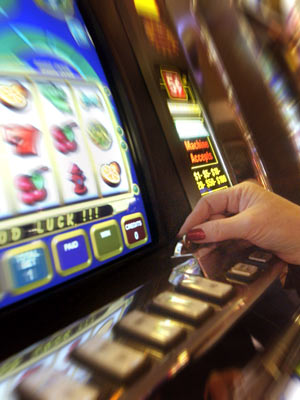 |
The Foundation for All Returns Is Risk
It's simple: The higher the risk, the greater the potential for returns -- or for losses. When you hear about outsized returns, ask about outsized risk. The problem with investments that are truly "risk free" is that they generate low returns. For higher returns, you need to invest in domestic or foreign stock markets (preferably both) and in bonds (债券), which can vary in terms of safety. |
 |
Don't Try to Outsmart Other People
Information about publicly traded investments is widely and instantly disseminated (散布). This information is studied by millions of investors who establish the price of a stock or bond based on this data. Are you really smarter than the millions of investors looking at the same data? Rich people don't try to predict the future when they invest. They try to reduce risk and capture market returns using diversified portfolios or, better yet, broad-based, low-cost index funds. |
 |
Don't Invest in Complex Instruments
The headline (大字标题) needs a caveat (警告): some rich people did invest in complex instruments they didn't understand. They are no longer rich. Hedge* funds are one example. The dizzying complexities of derivatives (衍生物), collateralized (抵押的;担保的) debt obligations (债务) and credit swaps (以物换物;交换) are the poster children (典型人物,典型代表) of the problem. These investments promised high returns with relative safety. You know what happened next.
|
hedge: A securities transaction that reduces the risk on an existing investment position.
保值措施,套期保值:一种减少现存投资状态的危险的有价证券交易
 |
Invest in Yourself
Rich people can afford the best education and great health care. Education and good health positions rich people to get richer. Rich people can also start and grow businesses. When these businesses succeed, they can plow the profits back into their ventures. It's not easy for poor people -- or even for people of moderate (中等的) means (财力) -- to emulate (仿效) these habits of rich people. But being frugal (节俭的, 朴素的) and believing and investing in yourself is a good start. |
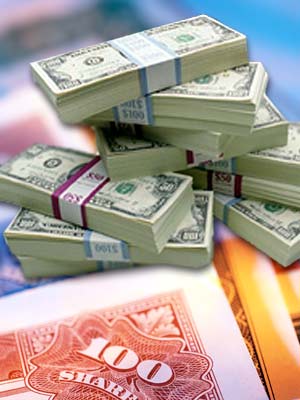 |
Don't Bet the Farm on One Stock or Asset Class
Six months ago, the investment du jour (most recent) was oil. Clearly, it had no where to go but up. Right? Wrong. Oil tanked and investors who bet it would only go up got slammed (冲击). I bet you can think of lots of other examples of sure-thing investments that tanked. Don't look for the hot sector. Rich people try to capture returns of global markets by remaining diversified (多样化的). Some emphasize areas where they are betting on stronger growth, but when they do, they place small bets. |
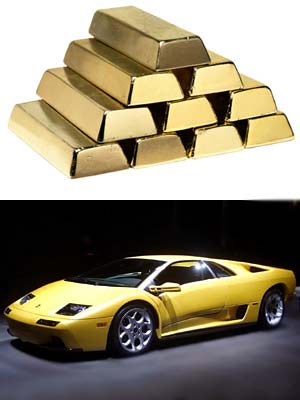 |
How to Spot an Appreciating (增值) Asset (资产)
Rich people get richer by buying assets that increase in value slowly over time. They build up businesses. They buy and hold real estate. Even when it comes to gifts, they buy jewelry, art, antiques (股东). Sure, they buy some depreciating (贬值) assets, like fancy cars, trendy electronics and fine clothes, but not at the expense of investing in appreciating assets. |
 |
Net Worth is Not Self-Worth
Rich people understand that money can't buy health or happiness. It also can't buy strong relationships with family and friends. Studies have shown that people who are isolated from society, without meaningful relationships, have a risk of death comparable to cigarette smokers. Wealthy people are deeply concerned about their physical, spiritual, intellectual and emotional health and their community. This kind of "wealth" is worthy of your best efforts. |
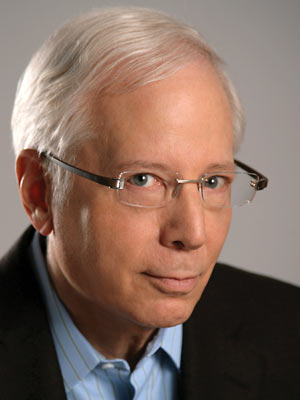 |
More on the Author
Daniel Solin is a Senior Vice President of Index Funds Advisors, Registered Investment Advisors. Solin has appeared on 'The O'Reilly Factor, MSNBC's 'Weekend Economic Review,' CNN's 'Money,' and Bloomberg Television, and is a frequent speaker on investment-related topics. His latest book, 'The Smartest 401(k) Book You'll Ever Read,' was recently on the New York Times bestseller (畅销) list. |